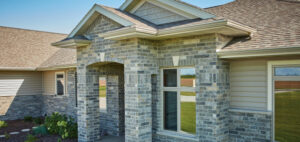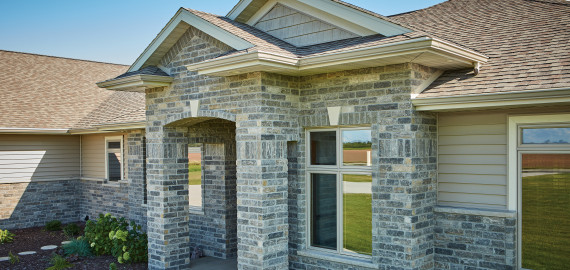Brick Masonry Charleston SC is one of the most widely used materials for building. Its durability means it can withstand strong winds and torrential rains.
It also resists fire. Masonry can save on energy costs, as brick and stone walls provide better insulation.
Masonry is a durable building material that resists fire, wind, mold, termites, and other pests. It is also strong and visually appealing, making it an attractive option for homes and businesses. It is an environmentally friendly choice that supports the local economy by creating jobs. It has low labor costs and requires less maintenance, lowering overall lifecycle costs and increasing occupant safety. In addition, masonry buildings are more energy efficient than those constructed with other materials, saving on utility bills.
Brick and stone masonry are popular construction choices for their durability and aesthetic appeal. They can be laid horizontally or vertically and are often combined with mortar to form a wall. They can also be stacked to create a staircase or a foundation for an underground structure. Masonry can also be used to make walls and other structures more resistant to damage from floods, soil erosion, and other natural disasters.
While brick masonry is highly durable, it can still be damaged by the elements. This is why it’s important to properly maintain a masonry structure. Proper maintenance can help prolong the lifespan of a masonry structure and prevent costly repairs.
The durability of masonry structures depends on many factors, including the design and detailing, as well as the type of mortar and masonry units used. In addition, the quality of the installation is also a crucial factor in the longevity of a masonry structure.
Masonry is built from clay shaped into blocks or other shapes and then fired in a kiln to achieve the desired properties. These blocks can be hollow (with cores occupying more than 25% of the unit) or solid for handling and uniform firing.
Strength
Masonry is much stronger than wood, and it stands up well to a variety of weather conditions. It also offers better insulation, so it will save you on heating costs. It is an environmentally friendly building material, as it is made from natural materials that are renewable. In addition, brick and stone are both very durable materials that can last a long time. It can also be used to create beautiful accents or cladding for a home’s exterior.
A typical masonry structure has a wall that is made from blocks or bricks, and mortar is placed between them to hold the structures together. It also has a layer of concrete on the inside to add strength. The mortar is often reinforced with steel, which adds more strength to the structure.
There are several different types of masonry construction, and each type has its own unique strengths and weaknesses. For example, stone and brick are very durable materials that can withstand the elements, but they are more expensive than other types of construction. Concrete block is an affordable alternative to stone or brick, but it is not as durable.
Many studies have been carried out to evaluate the compressive strength of masonry structures. Most of the tests are conducted using prisms or wallets to test their strength. However, testing masonry wall specimens is quite expensive. Hence, it is important to find an accurate prediction model for the overall compressive strength of masonry.
Some models have been developed to predict the strength of masonry structures by considering the brick-unit and mortar-unit strengths. These models are based on experimental data and statistical techniques. Lumantarna et al.studied the behavior of 45 masonry prisms constructed with vintage clay bricks and proposed an analytical model to predict their strength.
Stability
Masonry is a strong, durable material that can be used in a wide variety of construction applications. Masonry can be made from various materials, including brick, stone, and concrete blocks. Brick and stone are the most common types of masonry in use today. These materials are non-combustible and provide excellent thermal mass for buildings. They can also add a sense of elegance and beauty to a building.
Many structures that utilize masonry walls need to be stabilized due to structural loading or damage. Stabilization of masonry is often accomplished using mechanical ties or injection grouting. These methods can be customized to suit a specific project’s needs. These systems may include helical ties, injection grouting, or stay-in-place anchors.
It is well known that unreinforced masonry (URM) structures are vulnerable to out-of-plane forces in an earthquake and that this can lead to partial or complete collapse. It is also known that a rigid diaphragm at the top of a masonry structure can prevent this, but only if sufficient anchorage is provided. This study investigates the performance of URM walls with and without a diaphragm at the top.
The stability of open-plan masonry structures is dependent on the roof having sufficient strength and stiffness to restrain the wall tops. Previously, it was assumed that the shear diaphragm would do this, but the results of this study show that this is not always the case. Instead, a structural solution is proposed that can achieve similar results at a lower computational cost. It is shown that the solution is reliable and that the force-displacement curves obtained from it can be used to estimate the safety of a masonry structure.
Visual Appeal
Masonry is not only a durable building material, but it can also be visually appealing. For instance, a stone outdoor fireplace or a brick accent wall can enhance your home’s appearance and increase its value. Masonry is available in many colors and textures, so you can use it to create a unique and attractive look for your home.
When choosing a masonry design, it is important to consider the environment and architectural style of your house. It is also helpful to consider your own personal style. For example, you may prefer a more traditional look or something that is more contemporary. Depending on your preferences, you can choose between stone and concrete.
Masonry has many benefits, including a sense of brotherhood and social involvement. In addition, it is a great way to develop leadership and interpersonal skills. Masonry also teaches morality and values and promotes charity and community service. Masonry is a secular organization, but it is also tolerant of all religious thoughts. It does not require adherence to any particular creed or dogma and is open to all men who wish to become members.
In addition to enhancing your home’s visual appeal, a well-designed masonry project can also add to its functionality. For example, a retaining wall can help prevent soil erosion and increase the lifespan of your landscaping. It can also improve the drainage of your garden and yard. A retaining wall can be made from a variety of materials, including bricks and stones.
A masonry contractor will be able to build you a retaining wall that is sturdy and pleasing to the eye. They will consider the current landscape and architecture of your property and choose a design that blends in with the surroundings. They will also make sure that the retaining wall is safe and secure. They will also use a high-build coating formulation that provides 15 to 30 mil-thick films to protect the masonry from water damage and improve its visual appeal.
Cost
Masonry can be quite expensive to construct, but it can add a lot of value to your property. It is also a green construction method, which is good for the environment. However, it is important to understand the costs involved before hiring a mason for your project. This includes the cost of materials and labor. The number of bricks required to cover the surface area of a wall will affect the overall price. The quality of the bricks and mortar will also influence the final cost. For example, reclaimed bricks will be more expensive than new ones.
Another cost associated with masonry is the time it takes to build a structure using these materials. This is due to the fact that mortar cannot cure in cold or wet conditions, which can delay building times. Masonry construction is more suited to warm weather and drier climates.
Masonry walls are thick and sturdy, which helps them withstand high winds. They are also fire-resistant, which means they can protect the occupants of the building from harm. Additionally, they are more durable than wood, which can rot or decay over time.
Brick walls are a popular choice for homes and can be built as part of the interior or exterior. They can be a great addition to a modern or traditional design and are also known for their ability to absorb sound. The thick walls also provide excellent insulation, which can reduce heating and cooling costs. In addition, a brick wall can add to the value of your home. However, it is important to note that the thickness of these walls can limit the number of furnishings that can be placed in a room.

